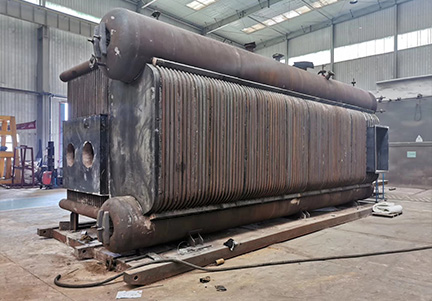Exporting Boilers for Asphalt Emulsion Production and Equipment Solutions
Boiler for Asphalt Emulsion Exporters Enhancing Production and Efficiency
Asphalt emulsions play a crucial role in modern road construction and maintenance, providing a durable and resilient solution for various applications. The production of asphalt emulsions requires advanced machinery, with boilers being a critical component in this process. For asphalt emulsion exporters, having an efficient and reliable boiler system is essential to meet the growing demands of the market. This article delves into the significance of boilers in the asphalt emulsion production process and highlights the benefits of investing in high-quality boiler systems for exporters.
Understanding Asphalt Emulsions
Asphalt emulsions are liquid mixtures of asphalt, water, and emulsifying agents that create a stable and homogenous product. They are widely used in paving, surface treatments, and other road maintenance applications due to their ability to reduce environmental impact, improve workability, and enhance the overall performance of asphalt. The production of asphalt emulsions involves heating the asphalt to a specific temperature, mixing it with water and emulsifiers, and then cooling the mixture to create a stable emulsion.
The Role of Boilers in Asphalt Emulsion Production
Boilers are vital in the production of asphalt emulsions, primarily because they provide the necessary heat to maintain the desired viscosity and consistency of asphalt. The heating process not only aids in melting solid asphalt but also ensures that the emulsions are created at optimal temperatures for effective mixing.
1. Temperature Control Maintaining the correct temperature is crucial in the production of asphalt emulsions. An efficient boiler system enables precise temperature control, ensuring that the asphalt reaches the necessary viscosity for mixing. This leads to a more consistent product and reduces the risk of emulsion instability, which can compromise end product performance.
2. Energy Efficiency In an industry that demands high energy consumption, investing in energy-efficient boiler systems can significantly reduce operational costs. Modern boilers are designed to maximize energy output while minimizing fuel consumption. This becomes particularly important for exporters aiming to maintain competitive pricing in a global market while ensuring profitability.
3. Production Capacity For exporters, meeting demand is crucial, especially when dealing with large contracts or tight deadlines. A robust boiler system affects overall production capacity. High-capacity boilers can facilitate continuous operation, thus increasing productivity and reducing lead times for deliveries.
4. Environmental Compliance With the increasing emphasis on sustainability, an effective boiler system must also comply with environmental regulations. Modern boilers are designed to minimize emissions and pollutants, contributing to cleaner production processes. Exporters can benefit from adhering to these regulations by enhancing their marketability and reputation.
boiler for asphalt emulsion exporters

5. Maintenance and Reliability The reliability of a boiler system is paramount in ensuring uninterrupted production. Regular maintenance schedules can prevent unexpected downtimes that could lead to lost revenue and disrupted supply chains. Exporters should consider investing in boilers that come with extended warranties and efficient service options to ensure minimal disruptions.
Selecting the Right Boiler for Asphalt Emulsion Production
When selecting a boiler for asphalt emulsion production, exporters must consider several factors
- Boiler Type Depending on the scale of operations and specific production requirements, exporters can choose between different types of boilers, such as fire-tube, water-tube, or electric boilers. Each type has its advantages, and understanding these can help in making an informed decision.
- Capacity and Size It's essential to choose a boiler that matches the production capacity of the facility. A boiler that is too small may lead to bottlenecks, while an oversized system can result in unnecessary fuel costs.
- Fuel Source Different boilers operate on various fuel sources, including natural gas, oil, or electricity. The choice of fuel can impact operational costs and environmental compliance, making it an important consideration.
- Technology and Automation Investing in advanced boiler technology with automated controls can enhance efficiency, consistency, and safety. Features such as real-time monitoring, remote control, and smart diagnostics can streamline operations and improve overall productivity.
Conclusion
For asphalt emulsion exporters, the significance of reliable and efficient boiler systems cannot be overstated. As the demand for high-quality asphalt emulsions continues to grow, so does the need for advanced production technologies. By carefully selecting the right boiler systems tailored to their specific operational needs, exporters can enhance production efficiency, maintain product quality, and ultimately gain a competitive edge in the market. Investing in state-of-the-art boiler technology is not just about meeting current demands; it’s about future-proofing operations in a rapidly evolving industry.
-
Top Electric Steam Boiler Manufacturers - High Efficiency SolutionsNewsJul.30,2025
-
Top Electric Steam Boiler Manufacturers – Efficient Industrial SolutionsNewsJul.29,2025
-
Top Electric Steam Boiler Manufacturers | Reliable Industrial SolutionsNewsJul.29,2025
-
OEM Steam Boiler Solutions for Custom Needs | High Efficiency & VersatilityNewsJul.29,2025
-
High-Efficiency Thermal Oil Boiler for Industrial Heating SolutionsNewsJul.29,2025
-
Top Electric Steam Boiler Manufacturers for Industrial EfficiencyNewsJul.28,2025

